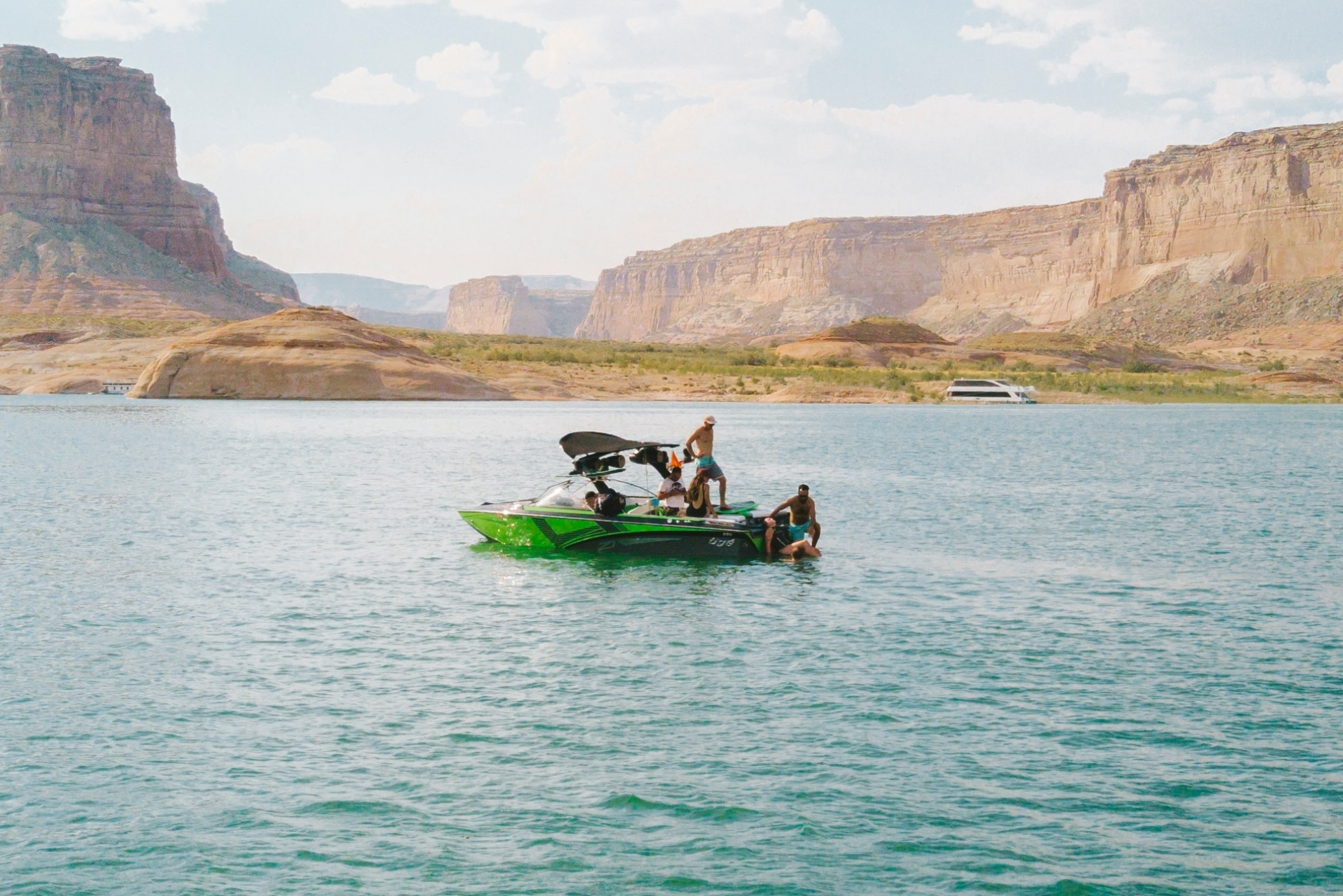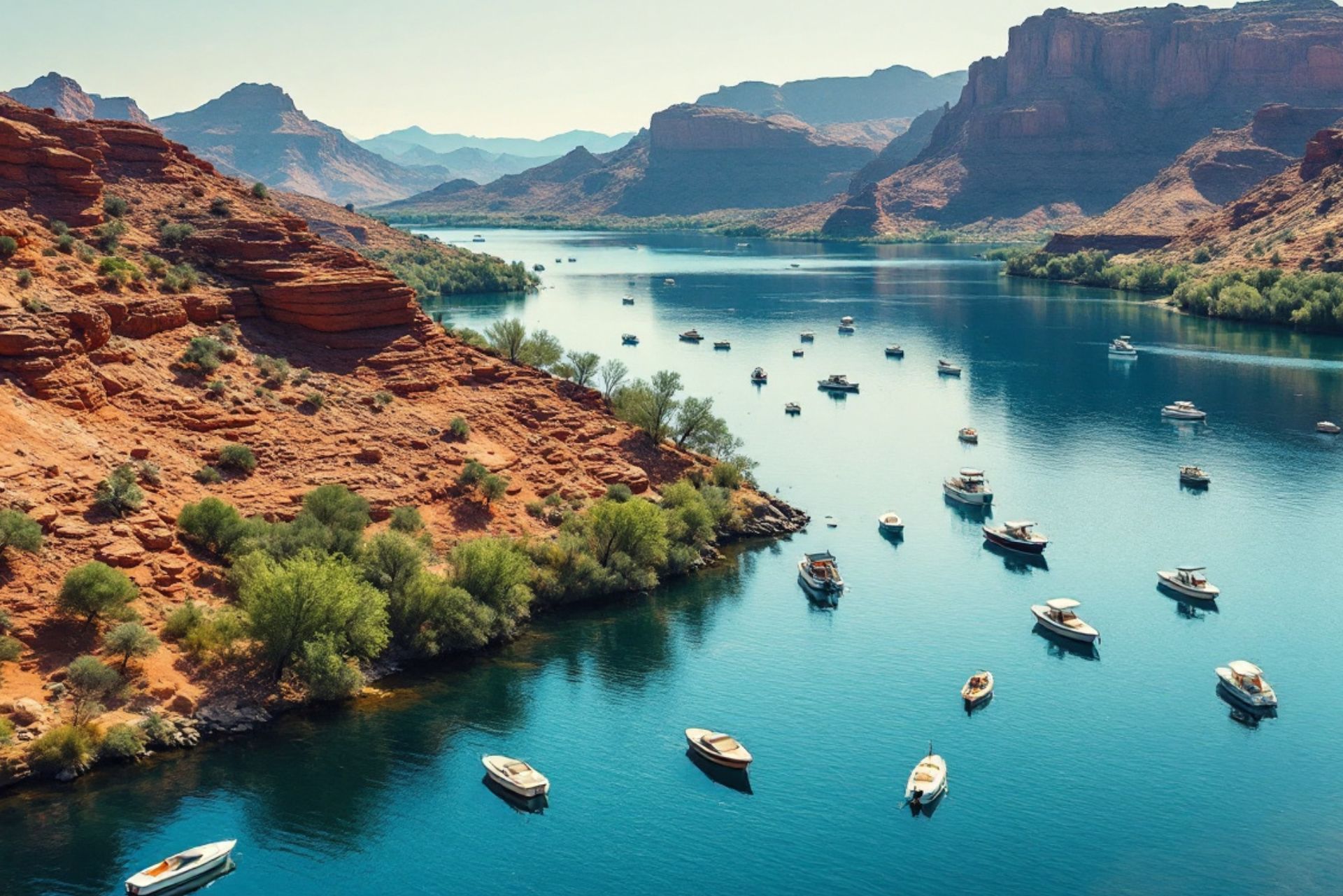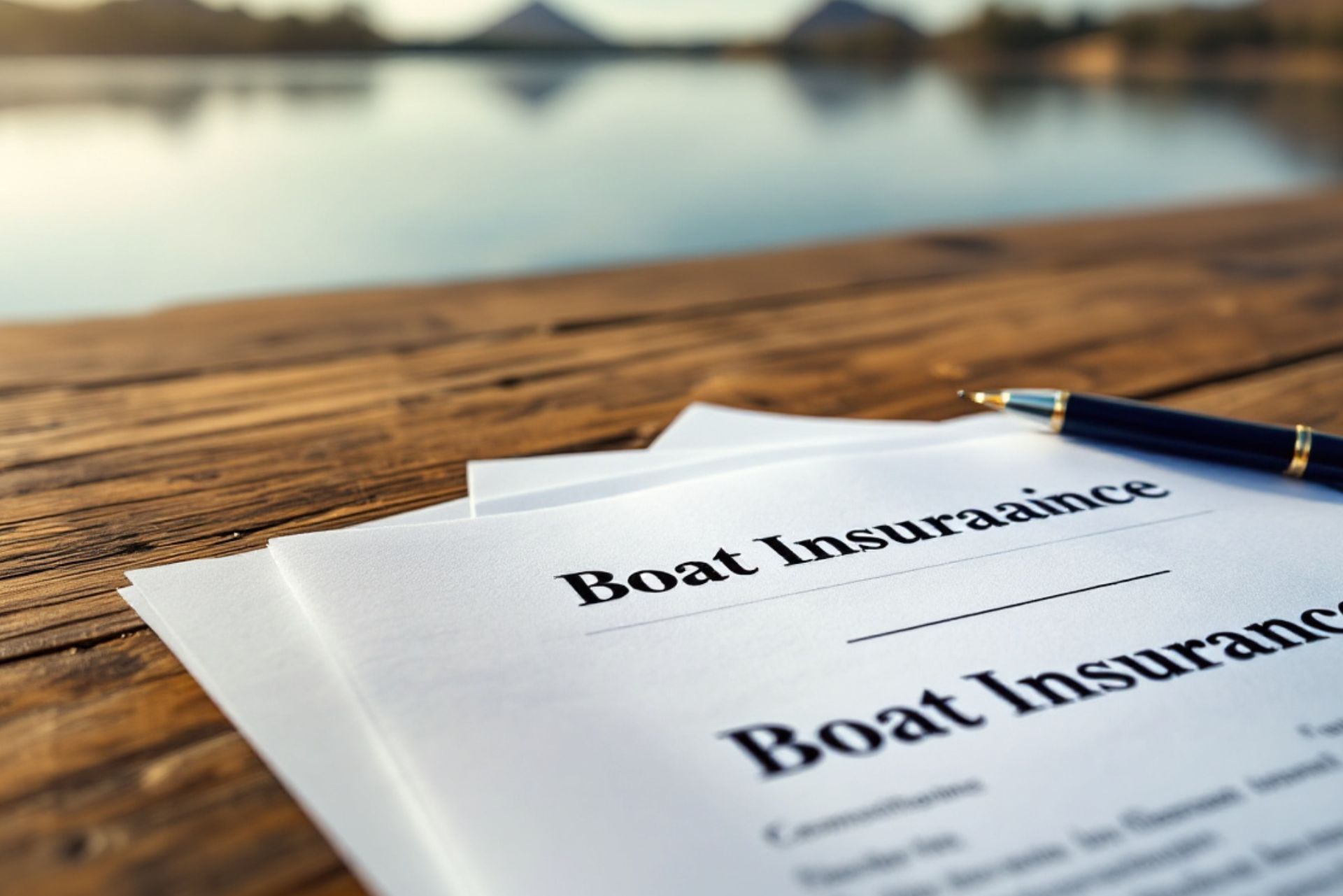
Most Common Personal Policies
Index
Contact Us
Arizona, with its stunning lakes and rivers, is a paradise for boating enthusiasts. However, owning a boat comes with responsibilities, including securing the right insurance. Understanding Arizona boat insurance is crucial for protecting your investment and ensuring peace of mind while enjoying the water. This article covers everything you need to know about boat insurance in Arizona, from types of coverage to legal requirements and tips for choosing the best policy.
Understanding Boat Insurance
Boat insurance is designed to protect boat owners from financial loss due to damages, theft, or liability claims. Just like auto insurance, boat insurance varies in coverage options and costs. It is essential to understand the different types of coverage available to make informed decisions. The importance of having adequate insurance cannot be overstated, especially considering the potential risks associated with boating, such as accidents, environmental hazards, and unforeseen incidents that can lead to significant financial burdens. Additionally, many marinas and docking facilities require proof of insurance before allowing you to dock your vessel, making it not only a wise choice but often a necessary one.
Types of Boat Insurance Coverage
There are several types of coverage options available for boat insurance, each serving different needs and circumstances. The most common types include:
- Liability Coverage: This covers damages or injuries you may cause to others while operating your boat. It is crucial for protecting your assets in case of an accident. Liability coverage can also extend to legal fees if you are sued, making it a vital component of your insurance policy.
- Physical Damage Coverage: This protects your boat from damages due to accidents, theft, vandalism, or natural disasters. It typically covers the cost of repairs or replacement. Depending on your policy, this coverage may also include provisions for salvage and recovery if your boat is damaged beyond repair.
- Medical Payments Coverage: This covers medical expenses for you and your passengers in the event of an accident, regardless of who is at fault. This type of coverage can be especially beneficial for families or groups, ensuring that everyone on board is taken care of without the stress of out-of-pocket expenses.
Additional Coverage Options
In addition to the basic coverage types, there are several optional coverages that boat owners may consider:
- Uninsured/Underinsured Boater Coverage: This provides protection if you are involved in an accident with a boater who does not have sufficient insurance. This type of coverage is increasingly important as the number of uninsured boaters rises, ensuring that you are not left to cover the costs of damages or injuries yourself.
- Personal Property Coverage: This covers personal belongings on the boat, such as fishing gear, electronics, and other equipment. Many boat owners invest heavily in their gear, and this coverage can provide peace of mind knowing that your valuable items are protected against loss or damage.
- Towing and Assistance Coverage: This provides coverage for towing services if your boat breaks down on the water. It can also include additional services such as fuel delivery or emergency repairs, which can be invaluable when you're far from shore and in need of immediate assistance.
Furthermore, boat insurance policies can also offer specialized coverage for unique situations, such as coverage for chartering your boat or for participating in racing events. These additional options can help tailor your policy to fit your specific boating lifestyle and activities. Understanding these nuances can help you select the best coverage for your needs and ensure that you are adequately protected on the water.

Legal Requirements for Boat Insurance in Arizona
While boat insurance is not legally required in Arizona, it is highly recommended. The state does not mandate boat owners to carry insurance, but certain circumstances may necessitate it.
When Insurance is Required
There are specific situations where having boat insurance is essential:
- If you finance your boat, lenders usually require you to carry insurance to protect their investment.
- If you operate a commercial vessel, insurance is often a legal requirement.
- While not mandated, many marinas and docking facilities may require proof of insurance before allowing you to dock your boat.
Understanding Arizona's Boating Laws
Familiarity with Arizona's boating laws is crucial for all boaters. While insurance may not be mandatory, adhering to safety regulations is essential:
- All boats must be registered with the Arizona Game and Fish Department.
- Operators of motorized vessels must complete a boating safety course if they are under 18 years old.
- Life jackets are required for all passengers on boats less than 18 feet in length.
In addition to these regulations, Arizona has specific guidelines regarding the operation of personal watercraft (PWCs). For instance, individuals must be at least 12 years old to operate a PWC, and those under 18 must wear a life jacket at all times. These measures are designed to enhance safety on the water, particularly for younger and less experienced operators. Furthermore, boaters should be aware that operating a vessel under the influence of alcohol or drugs is strictly prohibited and can lead to severe penalties, including fines and possible imprisonment.
Moreover, Arizona's diverse waterways present unique challenges and opportunities for boaters. From the expansive Lake Mead to the serene waters of the Colorado River, each location has its own set of rules and environmental considerations. For example, boaters should be mindful of wildlife and adhere to no-wake zones to protect fragile ecosystems. Understanding these nuances not only ensures compliance with state laws but also fosters a respectful relationship with the natural environment, enhancing the overall boating experience in Arizona.
Factors Affecting Boat Insurance Rates
Understanding the factors that influence boat insurance rates can help boat owners find the best policy at an affordable price. Several elements come into play when determining insurance premiums.
Type and Size of the Boat
The type and size of the boat significantly impact insurance rates. Larger boats or those with higher horsepower engines typically incur higher premiums due to the increased risk of accidents and damages. Additionally, the type of boat—whether it's a sailboat, powerboat, or personal watercraft—can also affect costs. Sailboats, for instance, may have lower premiums due to their slower speeds and lower accident rates compared to high-performance powerboats. However, the age and condition of the boat can also play a crucial role; a well-maintained vessel may attract lower rates than an older model that may require more frequent repairs.
Your Boating Experience
Insurance companies often consider the operator's experience and boating history. Experienced boaters with a clean record may qualify for lower rates, while those with previous claims or accidents may face higher premiums. Additionally, completing a boating safety course can not only enhance your skills but may also lead to discounts on your insurance. Insurers appreciate when boaters take proactive steps to ensure safety on the water, which can translate into lower risks and, consequently, lower costs.
Location and Usage
The area where the boat is primarily used also plays a role in determining insurance costs. Boats used in high-traffic areas or regions prone to natural disasters may attract higher premiums. Additionally, how often and for what purpose the boat is used—recreationally or commercially—can influence rates. For example, a boat used for fishing in a busy harbor might face different risks compared to one used for leisurely cruises in a calm lake. Furthermore, seasonal factors can also affect rates; some insurers may offer lower premiums during off-peak seasons when boating activity is reduced, reflecting the decreased likelihood of accidents during these times.
Choosing the Right Boat Insurance Policy
Selecting the right boat insurance policy involves careful consideration of various factors. Here are some tips to help boat owners make informed decisions.
Assess Your Coverage Needs
Before shopping for insurance, assess your specific coverage needs. Consider the value of your boat, how you plan to use it, and whether you need additional coverage options. Understanding your requirements will help you find a policy that fits your needs. For instance, if you plan to use your boat for fishing or water sports, you may want to look into liability coverage that protects against injuries to others or damage to their property. Additionally, if you frequently navigate through rough waters or plan to travel long distances, comprehensive coverage that includes protection against theft, vandalism, and natural disasters might be essential.
Shop Around for Quotes
It is essential to compare quotes from multiple insurance providers. Different companies may offer varying rates and coverage options, so obtaining quotes from at least three insurers is advisable. This process can help identify the best deal and coverage for your situation. While comparing quotes, take note of the customer service reputation of each insurer as well. A company that is known for its responsive claims handling and support can make a significant difference when you need assistance. Additionally, inquire about any discounts that may apply, such as those for safe boating courses or bundling insurance policies.
Read the Fine Print
Before committing to a policy, thoroughly read the terms and conditions. Pay attention to the exclusions, deductibles, and limits of coverage. Understanding the fine print will help avoid surprises when filing a claim. It’s also wise to clarify any ambiguous terms with your
insurance agent to ensure you fully comprehend your responsibilities as a policyholder. Some policies may have specific requirements for maintenance or storage that, if not followed, could affect your coverage. Furthermore, consider asking about the claims process itself; knowing how to navigate it can save you time and stress in the event of an incident.
Common Myths About Boat Insurance
There are several misconceptions surrounding boat insurance that can lead to confusion among boat owners. Addressing these myths can help clarify the importance of having the right coverage.
Myth: Boat Insurance is Not Necessary
Many boat owners believe that since insurance is not legally required in Arizona, it is unnecessary. However, accidents can happen, and having insurance can protect against significant financial loss. It is always better to be prepared. In fact, unforeseen incidents such as collisions with other vessels, grounding, or even damage from severe weather can lead to costly repairs or liability claims. Without insurance, boat owners may find themselves facing hefty out-of-pocket expenses that could have been easily mitigated with the right coverage in place. Additionally, some marinas and lenders may require insurance as part of their policies, making it essential for boat owners to consider their options seriously.
Myth: All Boat Insurance Policies are the Same
Not all boat insurance policies are created equal. Coverage options, limits, and premiums can vary widely between providers. It is crucial to research and compare policies to find the best fit for individual needs. For instance, some policies may offer specialized coverage for fishing equipment, while others might include roadside assistance for trailers. Furthermore, understanding the nuances of each policy, such as the difference between agreed value and actual cash value coverage, can significantly impact how much a boat owner receives in the event of a loss. Taking the time to thoroughly review and compare different policies can lead to better protection and potentially lower premiums.
Myth: Insurance Only Covers Accidents
While many people associate boat insurance solely with accidents, it also covers theft, vandalism, and damages from natural disasters. Understanding the full scope of coverage can help boat owners appreciate the value of their policy. For example, if a boat is stolen from a marina or damaged by a storm, comprehensive coverage can provide financial support to replace or repair the vessel. Moreover, many policies offer additional protections such as liability coverage, which can cover legal expenses if someone is injured while on board or if the boat causes damage to another property. This broader understanding of what boat insurance encompasses can empower owners to make informed decisions about their coverage and ensure they are adequately protected against various risks associated with boating. Additionally, some policies may even offer coverage for personal belongings on the boat, further enhancing the overall value of having insurance.

Filing a Boat Insurance Claim
In the unfortunate event of an accident or damage, knowing how to file a boat insurance claim is essential. The process can vary by insurer, but there are general steps to follow.
Document the Incident
Immediately after an accident, document the scene. Take photos of the damage, gather witness information, and write down details of what happened. This information will be crucial when filing a claim.
Contact Your Insurance Provider
Notify your insurance company as soon as possible. Most insurers have a dedicated claims department that can guide you through the process. Provide them with all necessary documentation and information regarding the incident.
Follow Up on the Claim
After filing the claim, stay in contact with your insurer to track its progress. Be prepared to provide additional information if requested. Following up ensures that the claim is processed efficiently and helps expedite any necessary repairs or reimbursements.
Tips for Lowering Your Boat Insurance Premiums
Take a Boating Safety Course
Completing a boating safety course can often lead to discounts on insurance premiums. Many insurers offer lower rates for boaters who have demonstrated knowledge of safe boating practices.
Increase Your Deductible
Opting for a higher deductible can lower your monthly premium. However, it's essential to ensure that the deductible is an amount you can afford to pay out-of-pocket in the event of a claim.
Bundle Insurance Policies
Many insurance companies offer discounts for bundling multiple policies, such as home and auto insurance. Consider consolidating your policies with one provider to take advantage of potential savings.
Conclusion
Boat insurance is a vital aspect of responsible boat ownership in Arizona. While it may not be legally required, having the right coverage can protect against financial loss and provide peace of mind while enjoying the beautiful waters of the state. By understanding the types of coverage available, legal requirements, and factors affecting premiums, boat owners can make informed decisions that suit their needs. Additionally, dispelling common myths and knowing how to file a claim can further enhance the boating experience. With the right preparation and knowledge, navigating the waters of boat insurance can be a smooth journey.
